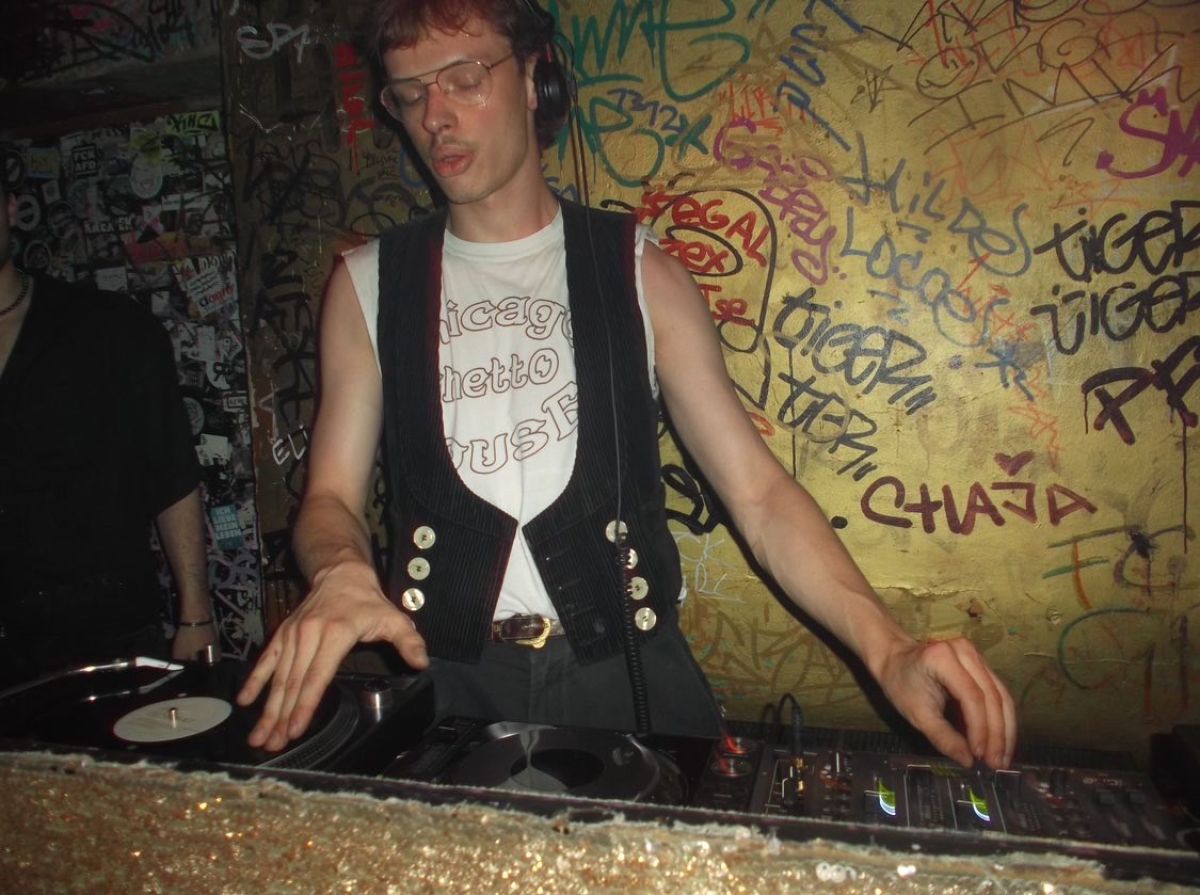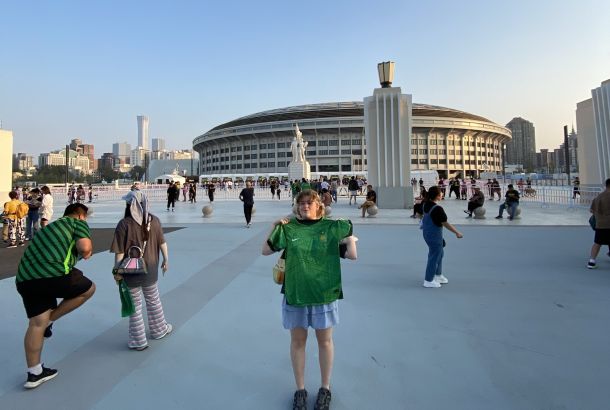From Our Correspondent: Uncovering Berlin’s lesser-known clubs

Our second edition of From Our Correspondent comes from Berlin, Germany, where Orlanda Stephens argues getting rejected after long queues for a club isn’t inevitable. Most have heard of the big-hitters like Berghain, but she finds the smaller, more intimate venues to be where Berlin excels.
There’s a common phrase in Berlin that, if you only queue for the big clubs, you might hear quite a lot: “heute leider nicht.” Roughly translated to “not tonight guys” – or, more patronisingly, “better luck next time”, it often signifies the premature end of a lot of nights out for tourists and Berliners alike. You can easily avoid this disappointment by picking a smaller club instead of the obvious tourist hot spots.
It wasn’t more than a couple of days after I moved into my flat in Kreuzberg that I found myself out on the famous Berlin club scene, but my first experience wasn’t exactly as I had expected. I had been dragged along by a new friend to her accommodation’s Latin American Society outing – a little awkward for me seeing as I am not Hispanic, nor do I speak any Spanish. Despite my best efforts, the “¿dónde está el aeropuerto?” I’d learnt from Duolingo whilst bored on the 142 bus was a bit difficult to weave into a conversation about reggaeton.
The event was hosted by a small Columbian promoter called Concept Group, a name I only remember because I kept the wristband out of sentimentality. After being introduced to Pisco for the first time – and drinking lots of it – I pondered how “necesito agua” was actually a useful phrase at that moment.
I don’t remember the name of the club. Had it even been a club? I do remember that I’d been in a basement with string LEDs that more closely resembled a Fallowfield house party than the extravagant Berlin clubs I’d been promised (my hotel room the previous week was coincidentally ‘256’).
That being said, it’s these cosier spaces that have stood out to me whilst living in Berlin – and yes – they’re a lot better than 256. You’ve got your big hitters: Kit-Kat, Tresor, even Berghain, and whilst they can be a lot of fun, sometimes the idea of being turned away after queuing in silence for over an hour in the freezing cold isn’t exactly my idea of a good time.
Major Berlin clubs are infamous for their door policies. Some are clearly outlined: Kit-Kat, for example, specifies dark fetishwear for some of their club nights, so if you see a long line of people dressed in nothing but suspenders and a black corset, don’t be surprised if you get turned away for wearing baggy jeans and a top. Sisyphos, by contrast, doesn’t have a concrete dress code, but it generally favours people dressed in more vibrant colours. Much like Berghain though, the turn-down rate is still pretty high.
There are unspoken rules for the queue: don’t go on your phone, don’t queue in big groups, don’t speak too loudly – especially if you’re not speaking German – don’t seem drunk, the list goes on.
Smaller clubs, however, are typically less strict on the door. Æden, for example, often allows larger groups in and you don’t have to follow a certain dress code. This is mostly the same with Wild Renate and Ohm, where you might have to separate a large group into pairs, but at least you can still speak English in the line and not raise eyebrows.
Another club to note is Berlin’s favourite boat party, Hoppetosse. Anchored on the Spree next to its sister club, Club der Visionäre, Hoppetosse offers long techno and house vinyl sets that take you back to the 80s and 90s.
With Hoppetosse being 21+, the energy inside the club is different to that of those in the UK. Everything feels more mature, more sophisticated yet wild at the same time. The music takes you back to the 90s, and the club does too: as you walk past a dimly lit bar, you’re met with an intimate dancefloor space, illuminated by rainbow lights that catch on the smoke from people’s cigarettes. It’s hot, sweaty, and less touristy – people are here for the music and are truly dancing.
You can move how you want, kiss who you want, and take what you want – and no one will know anything about it the next day. There are no phones to distract you from the little time capsule that these clubs create – it really feels like you’re partying back in the golden days.
Despite walking back out onto the boat’s deck no earlier than 7 am, you feel oddly refreshed. People outside are literally steaming as the sweat evaporates off of their skin into the frosty air, and happy faces are lit up by the golden sunrise reflecting off the water. You step off the boat, enjoy a cigarette and a morning coffee on the journey home, and think about trying to stay up so you don’t (completely) mess up your sleep schedule. There’s nothing like it. If the UK club scene is a lap cat, Berlin is untamed – there’s an atmosphere of genuine freedom and less commercialism that feels somewhat lost in the UK’s club scene today.
Characterised by its heavy, 4×4 beats, techno is the main type of music played at clubs in Berlin. It’s often hailed as the techno capital of Europe, even the world.
Let’s say though, that you have sufficiently sampled the techno on offer and you’re on the look-out for something different. Smaller venues provide outlets for all sectors of the underground, offering lots of different genres that you won’t find in the major clubs. Paloma Bar, for example, hosts Operate UKG, one of the few Garage promoters in Berlin. Zur Klappe also hosts Garage Girls alongside various Drum & Bass events which, in a city where breaks feel like a crime, is like seeing a unicorn in the flesh. Like with Concept Group, Reggaeton, Brazilian funk, and Amapiano are also around in Berlin.
In a city where you’ll pay a price of €20-25 for a standard weekend ticket, a venue like Zur Klappe, which charges €10 entry, seems like one hell of a bargain. Despite its dungeon-like appearance, the club I’d attended on behalf of Concept Group also only charged me €5 entry – so I couldn’t complain. The prices of most club tickets in Berlin increased drastically after the COVID-19 pandemic, and it makes you appreciate the lengths promoters in Manchester go to to try and keep costs down.
Another honourable mention is Humboldthain, which hosts a vinyl open decks on a Tuesday for just €3 entry, accompanied by table tennis – in the club. Affectionately nicknamed ‘Humbi Dienstag’, this is where many up-and-coming DJs in Berlin can get their first gigs.
Alternative clubs being a starting point for budding DJs was something I found myself talking about with DJ Kraft (Tom): co-owner and founder of rising Berlin collective, Genesis. In true chaotic Berlin fashion, what was meant to be a standard coffee shop interview turned into us grabbing an impromptu burger and then rushing on the U-Bahn to Humbi Dienstag so that Tom could sign up for an open decks slot. Not exactly what I’d had in mind, but quite fitting seeing as that’s where the collective had held their first in-club event.
“We got into Humboldthain and did our first legal party through a friend who runs a big party series here in Berlin now,” he says, lighting a hastily rolled cigarette. “It was him just telling the promoter that we wanted to do a party and then they kind of took a leap of faith, and it went well!”
I’d found out about Genesis in October through my flatmate, Sheida, who said that she’d somehow bumped into a DJ who went by the rather amusing name of ‘Dick Jockey’ on a night out. He’d then encouraged her to come to an event they were hosting at Zur Klappe that same week.
The group is made up of DJ Kraft, babp and Dick Jockey, and focuses on classic electro, ghettotech, and acid house: genres less common within the techno-dominated landscape. They began hosting free parties at the end of the COVID-19 pandemic but, eager to grow the collective, began planning their first club night. In Berlin, though, this wasn’t easy.
“I think the way that most of the clubs operate here is that you’re getting your first night there because someone vouches for you,” he adds. “The bookers will probably listen to your music and they’ll be like, ‘Okay, this is cool’, but someone has to vouch for you.”
He explains that the club scene is “super established” here: it’s difficult to hire out a new venue without certain connections and it’s common to jump through a plethora of hoops before you can host your first event.
“I think that definitely it’s a lot of…I think nepotism is the word? Like when you know someone…”
In this way, the notoriety of Berlin’s nightlife and its most famous clubs ironically seems to be making it harder for the underground to thrive. The abundance of high-profile DJs means that, if you’re a new promoter without a major headliner, clubs will be reluctant to host your event because they’ll be anxious about turning a profit at the bar. It’s an apparent double-edged sword: Berlin’s a melting pot for musical creatives but, as Tom tells me, there are so many of them, that it’s hard to get a foot in the door.
Nurturing grassroots venues, whether in Berlin or Manchester, is vital for discovering new talent and crafting new experiences. Concept Group only have 1,000 followers on Instagram, but their reggaeton parties create a welcoming and rare space for the Latin American community as well as offering an alternative to Berlin’s typical techno club.
Events like this are rare in Berlin, so going out and showing support to the club and the promoter is a surefire way to keep the underground scene thriving. DJ Kraft emphasised this at the end of our conversation:
“Support your local DJs, keep digging, go to record stores,” he says enthusiastically. “I work a shit job, [Dick Jockey] works a shit job, most of the people I know are working shit jobs and still doing music on the side because they love it…they’re not making money off this.”
It’s this dedication and genuine love for the scene which makes smaller venues and the promoters they house so worthy of our support. Small clubs are all about giving well-deserved, fun nights out back to the community – so next time you’re in Berlin, consider giving a little bit of love back to them, too.
Plus, you won’t have to hear the dreaded “heute leider nicht” nearly as much.
Words by Orlanda Stephens







